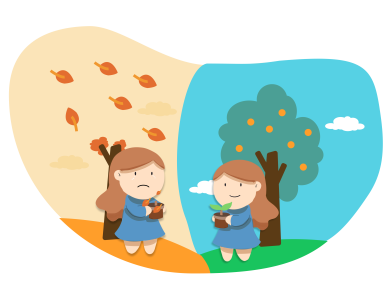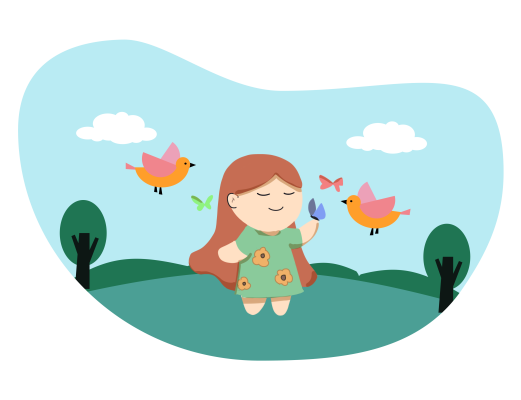What is Self-Esteem?
Self-esteem is an internal trait that is shaped by both our experiences and the opinions of others. This is something that develops and evolves over time.
Having confidence in yourself has a favorable effect on one’s perspective, feelings, and behavior. How you feel about yourself can have a significant effect on your happiness and success in life.
Self-esteem is about how you value and feel about yourself. If you don’t value yourself, you lack confidence and are more likely to see the worst in situations. You can love yourself more and have a more positive perspective on life if you have a healthy dose of self-esteem.
What Influences Self-Esteem?
The things you believe about yourself, your talents and flaws, and your hopes and expectations for the future all play a role in determining your level of self-esteem.
Certain people in your life may be able to boost your confidence through the words they choose to use about you. Perhaps you’ll give more importance to these communications if they come from trusted friends or family members. Your unique perspective, shaped by your upbringing, culture, and life experiences, will be essential in making sense of these communications.
Effects of Low Self-Esteem
If you have high self-esteem, you likely have positive views of yourself. You’ve probably made it through some tough moments in your life, and you can do it again. You won’t bottle up your emotions, so the stress of the moment won’t have as much of an effect on you as you might think.
If you don’t value yourself, you can dwell on your flaws and past failures. It’s more challenging to appreciate your strengths and the nice qualities you possess. When things go wrong in your life, it’s easy to put the blame on yourself.
It’s not always simple to determine from someone’s outward behavior and actions if they have a healthy or low sense of self-esteem. People can appear confident and cheerful on the outside, yet internally they may be struggling with a variety of problems.
Self-Esteem in Children
Someone with high self-esteem likes and values themselves, has faith in their own abilities, and is aware of their own strengths.
Children with high levels of self-esteem are more likely to do the following:
- Try something different, and don’t give up if it doesn’t work out.
- Try new activities that they’re not necessarily interested in doing or skilled at.
- Accept adversity instead of trying to escape it.
Children develop and learn when they take risks, deal with setbacks, and bounce back. That’s why having a healthy sense of self-esteem may be so important for kids.
Babies and self-esteem
Babies, especially newborns, don’t have much of a sense of self-esteem. They don’t yet recognize their unique identity. Nonetheless, you may still set yourself up for a lifetime of positive self-perception by doing the following:
- Tenderly caring for your baby
- Responding when your baby cries
- Offering lots of hugs and smiles.
If you show your infant lots of attention and care, he or she will quickly learn that you find them lovable.
Toddlers and self-esteem
In the early years of childhood, children begin to form their own identities and gain insight into their own capabilities. Here are some suggestions for boosting your toddler’s confidence:
- Give your toddler a choice between age-appropriate activities, such as picking out a toy, and foods, such as jam or vegemite for breakfast. The exciting feeling of control they get from this is great for their growing sense of self-esteem and independence as toddlers.
- Let your kid have the option to decline an offer. Babies and toddlers need to learn to stand up for themselves and to understand that their actions will have results. To give you an example, if you ask your kid to put on a jacket and they refuse, that’s fine. Getting cold won’t hurt them.
- Allow your child to discover their surroundings, but be close by in case they need help. For instance, a young child may be fascinated by an ant until it crawls across their foot, at which time they may become afraid. The only person who can reassure your child that everything is fine is you.
- Mentor your child as he or she navigates complex social interactions. Because they are still figuring out who they are and what belongs to them, toddlers may have a hard time sharing and taking turns. So, you can confidently assert, “The red block is mine to keep now.” You’ve done a fantastic job of sharing your knowledge.
Preschoolers and self-esteem
Preschoolers, being naturally competitive, typically want to know if they are the biggest, fastest, or best at whatever they are doing compared to their peers. Developing a healthy sense of self-esteem is an important part of raising a happy, healthy child.
Here are a few suggestions:
- Provide your child with honest feedback. This is not an opportunity to praise your child for being the “best,” but rather for trying their best or trying something new. They learn to celebrate the achievements of others as a result. For instance, “good job on the race and for trying your hardest; you have my admiration.” Let us now congratulate him on his victory.
- You should probably let them know that losing sometimes happens. You may have asked, “Did you try your hardest?” or “Did you have fun?” instead of, “Did you win?” When you do this for your child, he or she will learn to value himself and others the way you do.
- Relax and have fun with some basic card games or board games. Your kid will learn cooperation and social skills while having fun with these turn-based activities. As a result, your kid might develop useful talents and self-assurance.
- Have your kid assist you around the house by doing things like setting the table or folding the clothes. Your child will feel more confident in himself after seeing that you trust them with a duty.
- Engage with your child in the activities they enjoy. One option is to take a trip to the library and check out some books on your kid’s preferred topic. Alternatively, you may play a game your kid enjoys with him or her, such as a block or puzzle game, or even kick a ball around.
Primary school-age children and self-esteem
It’s common for kids to evaluate their abilities compared to their peers while at school. At this age, a child’s sense of self-worth depends on a lot of things, like how well they do in school, how attractive they are, how good they are at sports, and how well they can make and keep friends.
In the face of difficulties at school, your child may experience feelings of inadequacy for the first time. But this will teach children that they don’t have to be perfect to be loved, valued, or good at something.
You can help them by doing the following:
- At the end of the day, be sure to shower them with additional affection.
- Recognize and applaud your child’s determination and bravery when he or she does something new or challenging. For instance, you were so courageous to give dancing a shot during the concert.
- Encourage your child’s willingness to try again after the initial attempt fails. Say something like, “Go ahead and give it another shot; I know you’ve got what it takes.” Your child’s resilience will be strengthened as a result of this.
- Teach your child how to handle challenging interactions with others by saying things such as, “Try giving a huge smile when you want to join in.” Being joyful will make other people more likely to want to play with you. Before putting your child in one of these scenarios, you could consider practicing with him or her first.
Connecting the home and school environments can help your child succeed. It’s also helpful if parents take an active interest in their children’s academic pursuits and help with additional activities at school.
Takeaways
A child’s sense of self-esteem can be increased by helping them gain confidence. Children’s confidence can grow when their parents take an active interest in their lives and spend time with them.
It’s possible to motivate your child to try new things by setting achievable goals with them. Don’t be harsh if they make mistakes, but acknowledge and reward progress. Make sure they feel heard and that they can make their own decisions. Support their interests and social lives as well.
Give them lots of comforting hugs, make eye contact, smile, and encourage them to talk about how they feel.
Assure your child that they can do anything they set their minds to, that they can break down difficult jobs into manageable pieces, and that they can always come to you for assistance.







